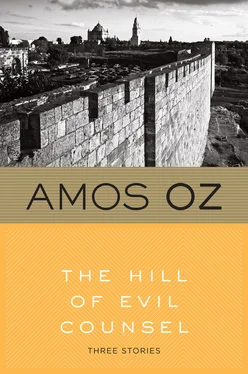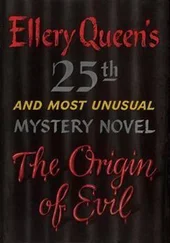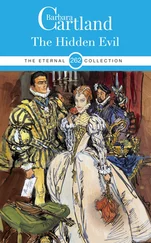Madame Yabrova the pianist and her niece, Lyubov, who called herself Binyamina Even-Hen, in the determined way they played the piano, seemed to be nobly refraining from repaying life for what it had done to them. Mrs. Vishniak the pharmacist would grumble to Hillel and say that little children were the only hope of the Jewish people, and particularly of herself. At times Hillel wrapped himself in introspection or sadness, and then he would delight them with a sweet phrase, such as:
"Life is a circle. Everyone goes around and around."
And stir ripples of emotion.
But the children of Tel Arza called him by the unpleasant nickname "Jelly." Unkind, skinny girls, vicious Oriental girls, enjoyed knocking him down on a heap of gravel and pulling his blond hair. Keys and amulets hung around their necks. They emitted a pungent smell of peanuts, sweat, soap, and halvah.
Hillel would always wait until they had had enough of him and his curls. Then he would get up and shake the dust off his gym shorts and his cotton undershirt; gasping for breath, his eyes full of tears, he would bite his lip and begin to forgive. How nobly forgiveness shone in his eyes: those girls did not know what they were doing; they probably had unhappy fathers and brothers who were high up in the underworld or in football; their mothers and sisters probably went out with British soldiers. It was a terrible thing to be born an Oriental girl. And one of them had even started to grow breasts under her sweaty vest. Hillel reflected, forgave, and was filled with love of himself for his ability to understand and to forgive.
Then he would run to Mrs. Vishniak's pharmacy to cry a little, not because of the scratches but because of the cruel lot of the girls and his own magnanimity. Mrs. Vishniak would kiss him, console him with sticky candy, tell him about the mill on the banks of the blue river, which no longer existed. He would tell her, in carefully chosen words, about a dream he had had the previous night, interpret the dream himself, and leave behind a delicate mood of poetry as he went off to practice the piano in the dark, airless house of Madame Yabrova and Binyamina. He returned the caresses he had received from Mrs. Vishniak to the haughty bronze Beethoven on top of the sideboard. After all, Herzl, in his youth, was called a madman in the street. And Bialik was always being beaten.
In the evening, before he went to bed, Hillel would be summoned to his father's room in his pajamas. This room was called the study. It contained bookshelves, a desk, and a glass-fronted showcase of fossils and ancient pots; the whole was skeptically surveyed from a sepia photograph by the famous geographer Hans Walter Landauer.
He had to utter an intelligent sentence or two for the benefit of the guests. Then he was kissed and sent off to bed. From across the corridor came the sounds of the grownups talking passionately, and Hillel in his bed caught their passion and began to pamper his tiny organ with his fingers through the opening of his pajama trousers.
Later, the forlorn sound of Lyubov Binyamina's cello came to him through the darkness, and he suddenly despised himself. He called himself "Jelly." He was filled with sorrow for all men and women. And fell asleep compassionately.
"He's a real mensh, " Mrs. Vishniak would say in Yiddish. "Clever. Witty. A little devil. Just like the whole family."
Beyond the low fence, which Father had made from iron posts and old netting and painted in bright colors, began the wasteland. Plots of scrap iron, dust, smelling of thistles, of goat dung; and farther on, the wadi and the lairs of foxes and jackals; and still farther down, the empty wood where the children once discovered the remains of a half-eaten Turkish soldier in the stinking tatters of a janissary's uniform. There were desolate slopes teeming with darting lizards and snakes and perhaps hyenas at night, and beyond this wadi, empty, stony hills and more wadis, in which Arabs in desert robes roamed with their flocks all day long. In the distance were more and more strange mountains and strange villages stretching to the end of the world, minarets of mosques, Shu'afat, Nabi Samwil, the outskirts of Ramallah, the wail of a muezzin borne on the wind in the evening twilight, dark women, deadly-sly, guttural youths. And a slight hint of brooding evil: distant, infinitely patient, forever observing you unobserved.
Mother said:
"While you, Hans, are dancing like a teddy bear with that old lady you treated, I shall sit all alone in my blue dress on a wickerwork chair at the end of the veranda, sipping a martini and smiling to myself. But later on I, too, shall suddenly get up and dance, with the Governor of Jerusalem, or even with Sir Alan himself. Then it will be your turn to sit it out by yourself, and you won't feel at all like smiling."
Father said:
"The boy can hear you. He understands exactly what you're saying."
And Hillel said:
"So what?"
For the occasion, Father borrowed from his neighbor Engineer Brzezinski an English evening suit made by the Szczupak textile factory in Lodz. Mother sat on the shady balcony all morning altering it to fit him.
At lunchtime, Father tried the suit on at the mirror, shrugged his shoulders, and remarked:
"It's ridiculous."
Mother, laughing, said:
"The boy can hear you. He understands everything."
Hillel said:
"So what? 'Ridiculous' isn't a dirty word."
Father said:
"No word is dirty in itself. In general, dirt lies either behind words or between them."
And Mother:
"There's dirt everywhere here. Even in the grand ideas you're always putting into Hillel's head. Even in your stray remarks. And that's also ridiculous."
Father said nothing.
That morning the newspaper Davar said that the politics of the White Paper were leading up a blind alley. Hillel, with an effort of the imagination, could almost visualize the "blind alley."
Mitya the vegetarian lodger padded barefoot from his room to the kitchen to make himself a glass of tea. He was a tall, etiolated young man with thinning hair. His shoulders always drooped, and he walked with short, nervous steps. He had an odd habit of suddenly chewing the tip of his shirt collar, and also of angrily stroking every object he came across, table, banister, bookshelf, Mother's apron hanging on a hook in the kitchen. And he would whisper to himself. Engineer Brzezinski declared hotly that one day it would emerge that this Mitya was really a dangerous Communist in disguise. But Mother good-naturedly offered to launder his few clothes with the family wash.
As Mitya shuffled to the kitchen, he waved his hand in every direction in greeting, as though confronting a large crowd. Suddenly his glance fell on the words "blind alley" in the headline on the center page of Davar, lying open on the oilcloth on the kitchen table. He bared his bad teeth and snarled furiously:
"What rubbish."
Then, clasping the hot glass in his large white hands, he strode stormily back to his room, locking his door behind him.
Mother said softly:
"He's just like a stray dog."
After a short pause, she added:
"He washes five times a day, and after each time he puts on scent, and even so he always smells. We ought to find him a girl friend. Perhaps a new immigrant from the Women's Labor Bureau, poor but charming. Now, Hans, you go and shave. And Hillel — go on with your homework. What am I doing in this madhouse?"
5
She had come from Warsaw as a young woman to study ancient history at the university on Mount Scopus. Before a year was up, she was in despair at the country and the language. Nyuta, her elder sister in New York, had sent her a ticket to go from Haifa to America aboard the Aurora. A few days before the date of her departure, Dr. Ruppin had introduced her to Father, shown him her beautiful water colors, and expressed in German his sadness that the young lady was also leaving us, that she, too, found the country unbearable and was sailing to America in disappointment.
Читать дальше











